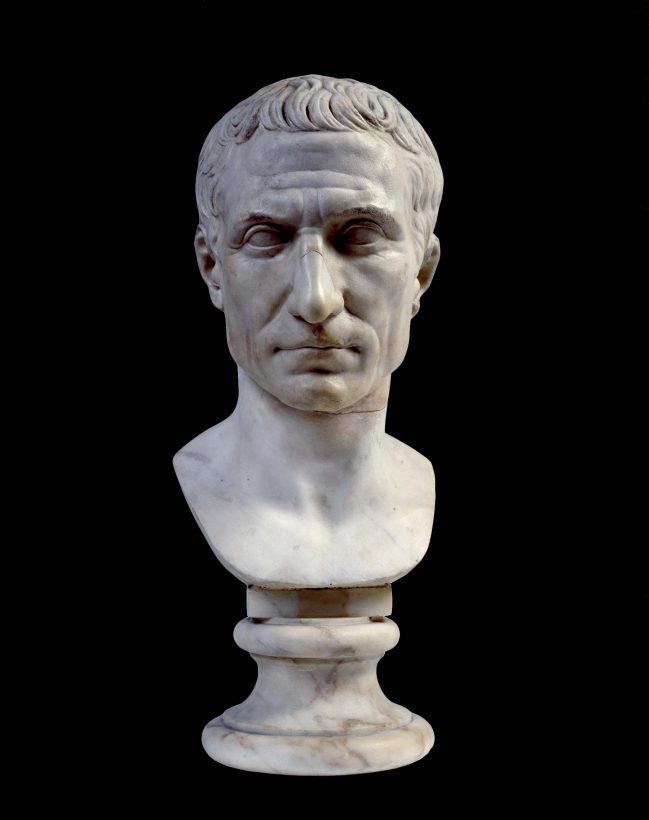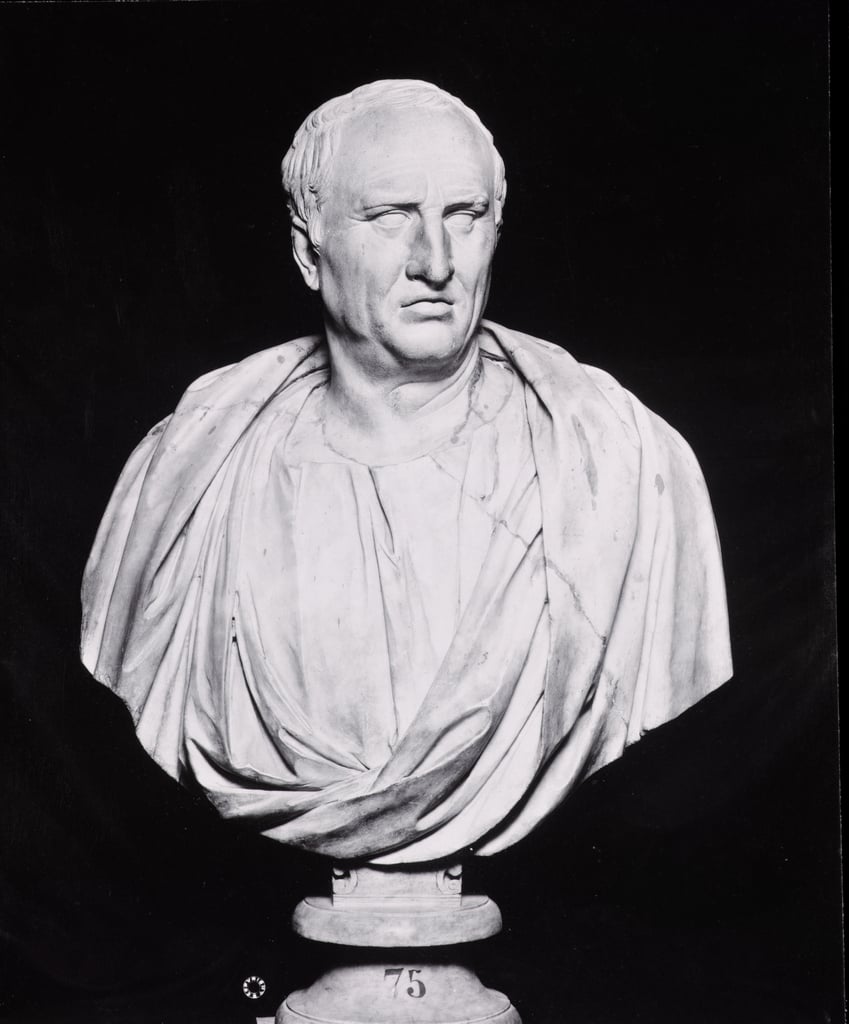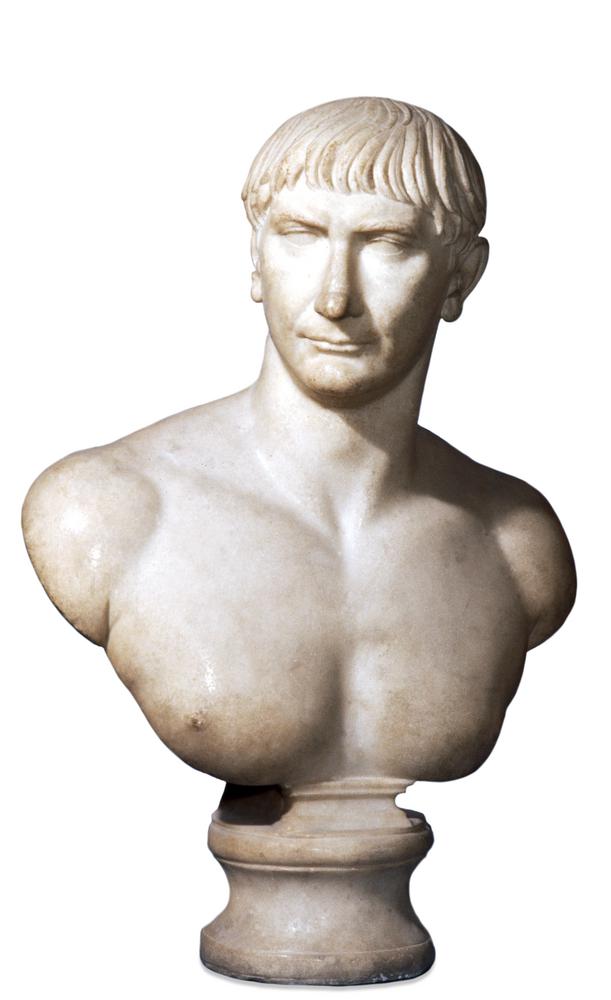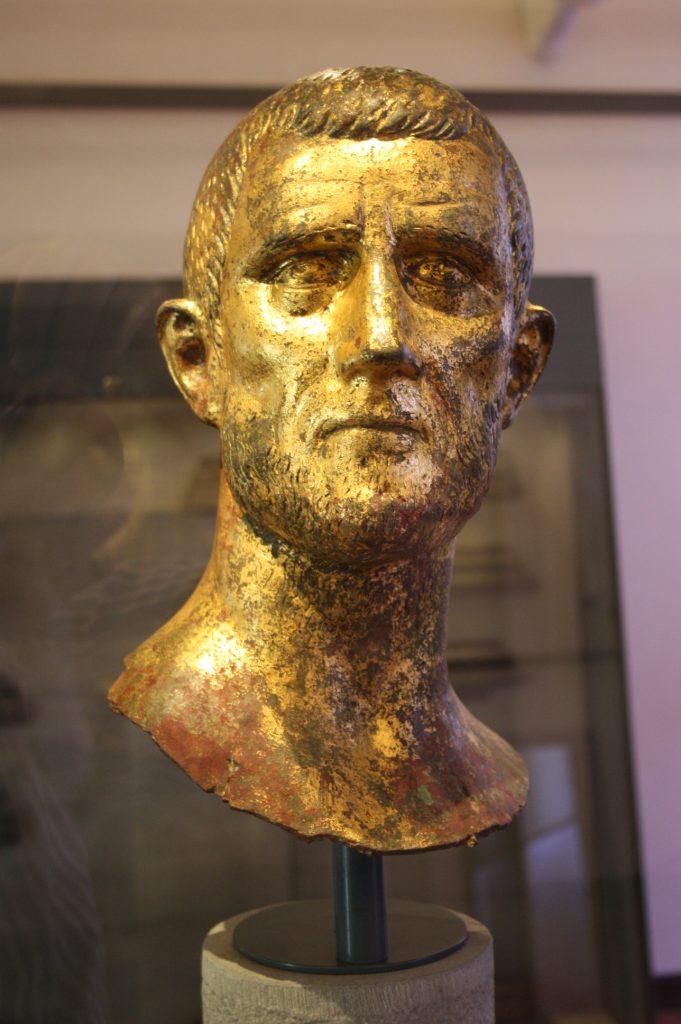For the past years I have been learning about the oldest predecessor of the European Union; the ancient romans. During this time, I have gathered a lot of information about them and I have grown to admire many of their achievements (while being able to criticize their many flaws). Due to that, I thought that I could talk a little about them to show how while doing a PhD there is still time to enjoy the things that you like and even learn new ones. I thought that a great way to introduce the topic would be a simple list of some of my favourite roman personalities with a brief commentary about why do I find them so interesting. So, there I go.
–Julius Caesar- Everyone knows about Caesar, but not everyone knows why is he so incredible. His capability to understand that the time of the Roman Republic had come to an end and a new order had to be created is something that people from her time were not able to accept. His great capability to lead men both in the battlefield and in the civil affairs made him one of the best possible choices for the Republic to fall into in those turbulent years.
As a Dictator in perpetuity he planted the seed for the incoming Roman Empire that his nephew Octavius (later Caesar Augustus) would create after his death. He left such a scar in history, that two thousand years after his time, the title of the ruler in different countries is nothing but his name, Caesar, Kaiser, Zar.
If I had to define him with three words, those would be “charisma”, “luck” and “vision”.

–Cicero- One of the last true republicans, Cicero is known as a great roman thinker that opposed the tyrannical power of the first and second triumvirates (to which Julius Caesar and Octavian respectively belonged). His strong defence of the honour and morality of the Roman Republic with his great oratory skills made him a force to reckon with during the first century BCE by the enemies of the Republic. Cicero and his friend, Cato the Younger, were two incredible figures that through pure moral strength defended their freedom and the one from their countrymen from totalitarian hands. Using the pen and the sword respectively, they didn’t stop until both of them were dead, not because they weren’t given the chance to live kneeling down, but because they preferred to die standing.

–Trajan- Second of “The five good emperors”, and the first one technically speaking. He was the first provincial emperor, this is, not purely roman from Rome, and even though that made the senate fear the decadence of the empire, Trajan proved them clearly wrong. With Trajan the Roman Empire reached its peak. He is considered by many the last great roman conqueror due to his annexation of Dacia, Arabia, Armenia and Mesopotamia among others without ever losing a battle. His wise measures and decentralization of the administration helped maintain and thrive such a multicultural empire as the Roman Empire at the beginning of the 2nd century.
Considered by many the best even in his own time, Trajan was awarded the title “Optimus Princeps” by the senate, the perfect emperor.
Trajan is a dream of union between peoples of a land that is bigger than them. Trajan is the first step towards the Roman Empire embracing its multi-ethnic nature. Trajan is the Roman Empire at its peak.

–Aurelian- One of the Illyrian emperors that put an end to the crisis of the third century, Aurelian reigned for just a short time over the Roman Empire. But what a short time! When he ascended to power the Roman empire was divided in three; the western part (the self-declared Gallic Empire), the eastern part (the self-declared Palmyrene Empire), and the central part (the proper Roman Empire). In just five years as an emperor, Aurelian didn’t just repelled different invasions from foreign threats, but he managed to unify back the deeply broken Roman Empire. Due to this incredible achievement he was granted the title “Restitutor Orbis”, this is, the restorer of the world.
Many of the steps Aurelian took had grater repercussion later, such as his embrace of monotheism, particularly the religion of Sol Invictus, which cemented the later path for Constantine’s embrace of Christianism, his abandonment of Dacia due to its indefensible state in the further side of the Danube river or his city wall policy which helped the empire against the future raids of northern tribes.
Sadly, Aurelian’s death was not at his level. He died after one of his administrators was discovered to be corrupt, and before the emperor was told, he faked a note saying that the emperor was planning to kill many of his generals in the army. Then the administrator gave the note to those generals and out of fear they killed Aurelian that same day. That way a great man died and the legend of the Restorer of the World was created.


